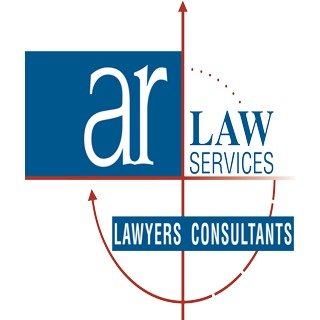Best Native People Lawyers in Melbourne
Share your needs with us, get contacted by law firms.
Free. Takes 2 min.
List of the best lawyers in Melbourne, Australia
About Native People Law in Melbourne, Australia
The Native People Law in Melbourne, Australia, primarily focuses on the rights and interests of the Aboriginal and Torres Strait Islander people, referring to the First Nations people of Australia. These laws often encompass land rights, heritage protection, cultural preservation, and social justice issues among others. The legal framework is designed to recognise the unique connection that the Aboriginal people have with their traditional lands and to address historical social and economic inequalities.
Why You May Need a Lawyer
Engaging with a lawyer who specialises in native people law can be necessary if you're working with issues related to land ownership, Native title claims, heritage protection, or seeking redress for historical injustice. The lawyers can provide advice, represent in negotiations, court proceedings or with matters before the National Native Title Tribunal. They can also effectively communicate and negotiate on behalf of the community or individuals with various governmental bodies.
Local Laws Overview
Local laws particular to Native People in Melbourne primarily involve the Aboriginal Heritage Act 2006, which protects Aboriginal cultural heritage in Victoria, and the Traditional Owner Settlement Act 2010, which provides a framework for settling Native title claims outside the contentious Federal Court process. It's also worth noting the Aboriginal Justice Agreement, a partnership between the Victorian Aboriginal community and the Victorian Government, aimed at improving justice outcomes.
Frequently Asked Questions
What is Native Title?
Native Title is the legal recognition of the rights and interests of Aboriginal and Torres Strait Islander people in land and waters, according to their traditional laws and customs.
What does an Aboriginal Heritage Advisor do?
Aboriginal Heritage Advisors provide advice on the protection and management of Aboriginal cultural heritage. This may include surveying lands for the presence of Aboriginal cultural material, providing cultural heritage awareness training, developing cultural heritage management plans, and more.
What is the Aboriginal Justice Agreement?
The Aboriginal Justice Agreement is a long-term partnership between the Victorian Aboriginal community and the Victorian Government. Through this agreement, both parties work collaboratively to improve justice outcomes for Aboriginal Victorians.
What are Native Title Claims?
Native Title claims or 'determinations' are legal processes where Aboriginal and Torres Strait Islander people seek legal recognition that they hold native title rights and interests over a particular area of land or waters.
Who are the Traditional Owners?
The Traditional Owners refer to the specific Aboriginal and/or Torres Strait Islander groups who, according to their traditional laws and customs, have a spiritual, social, and economic relationship with a particular area or body of land.
Additional Resources
The Victorian Aboriginal Legal Service, Aboriginal Victoria and the Victorian Equal Opportunity & Human Rights Commission are key resources if you need further information. Similarly, the National Native Title Tribunal provides valuable information regarding Native Title matters.
Next Steps
If you require legal assistance regarding Native People Law in Melbourne, Australia, consider reaching out to a lawyer or legal firm specialising in this domain. They can provide expert guidance tailored to your specific needs and circumstances.
Lawzana helps you find the best lawyers and law firms in Melbourne through a curated and pre-screened list of qualified legal professionals. Our platform offers rankings and detailed profiles of attorneys and law firms, allowing you to compare based on practice areas, including Native People, experience, and client feedback.
Each profile includes a description of the firm's areas of practice, client reviews, team members and partners, year of establishment, spoken languages, office locations, contact information, social media presence, and any published articles or resources. Most firms on our platform speak English and are experienced in both local and international legal matters.
Get a quote from top-rated law firms in Melbourne, Australia — quickly, securely, and without unnecessary hassle.
Disclaimer:
The information provided on this page is for general informational purposes only and does not constitute legal advice. While we strive to ensure the accuracy and relevance of the content, legal information may change over time, and interpretations of the law can vary. You should always consult with a qualified legal professional for advice specific to your situation.
We disclaim all liability for actions taken or not taken based on the content of this page. If you believe any information is incorrect or outdated, please contact us, and we will review and update it where appropriate.








